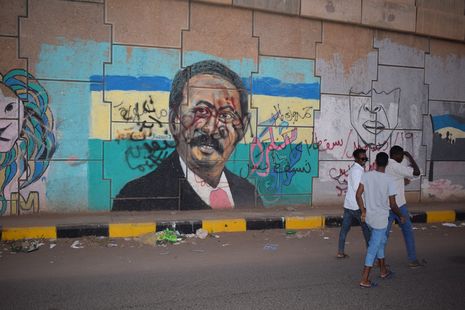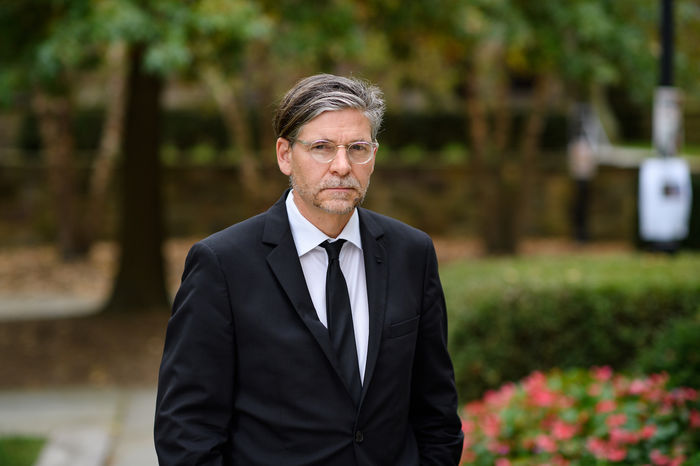Josef Skrdlik on witnessing the coup in Sudan
Juliette Guéron-Gabrielle speaks to Josef Skrdlik, a former master’s student at Cambridge who witnessed the military take over from Khartoum

On the 25th October, the military arrested Hamdok, the prime minister of Sudan. The arrest was led by General Burhan, the head of the security council, who was due to step down from his role this November.
Following the arrest, the World Bank, the African Union, and the United States froze their aid to the country. Civilian protests intensified. During their repression, at least 40 died. Sudan had been led by a civilian government, working with the military, ever since General Omar Al-Bashir was overthrown by mass civilian demonstrations in 2019.
This Sunday (21/11), Hamdok was reinstated and made a televised announcement in support of a power sharing agreement with the military. As of today (22/11), the civilian government has not been reinstated.
The following interview was conducted days after the coup of the 25th of October, as Hamdok was still under house arrest. Skrdlik is a former master’s student at Cambridge. He was travelling across the horn of Africa when he witnessed the military take over. He watched his friends get beaten up.
“I woke up and the streets were completely deserted. Everyone in my hotel was gathered around the TV watching the news. Someone told me that the prime minister had been arrested,” Skrdlik tells me of his experience of the coup of in Khartoum.
The coup was preceded by protests against Hamdok’s government. “This was the week before the coup. In front of the presidential palace, several hundred people — around 3000 during the biggest gathering — were calling for the military to take power. But that is 3000 in a country of 44 million. How representative is that? I went to a sit-in in the area to talk to the protesters. Nobody even had a clear and convincing answer to why they were there. What I heard was a mix of conspiracies about Hamdok’s alleged connection to Freemasons and scepticism about ‘dangerous democracy experiments’.”
“The political preferences of Sudanese people became clear on 21st October, the anniversary of the October Revolution of 1964 which overthrew the dictatorship of General Abboud,” says Skrdlik. “Hundreds of thousands of people took to the streets to defend the civilian government against the prospect of military rule. It was obvious: nobody wanted the coup. But then the coup happened on Monday, to everyone’s surprise.”
“Everything got closed, the network was down and it was impossible to leave the country. Like everyone else, I was spending my days drinking tea in the street and waiting for things to come back to normal. People were unhappy but not many were willing to get involved in the protests.”
“Attending a protest in Sudan means you might get killed. One of my friends, who took part in the 2019 revolution, decided to stay home this time. In 2019, he found himself in a crowd the military was shooting at — the people around him got killed. He said it was just too dangerous to go to the streets.”
“After the coup, there were protests every day. Omdurman, a city attached to Khartoum, basically became a battlefield. There were barricades everywhere, people were burning tyres on the crossroads to block the traffic and would throw rocks at passing by military vehicles.”
“The situation can escalate quickly. The danger is omnipresent. I was unlucky to get caught up in one of the more critical situations. I was peacefully drinking tea with friends in a street cafe. Suddenly we heard shooting in the distance and a sound of military trucks. My friend noticed I was getting nervous because I was not used to the situation and told me everything was going to be okay. To ease the tension, he chanted the refrain of Bob Marley’s ‘Everything’s gonna be alright’. We all started laughing.”
“Then the soldiers appeared in the background, shouting something in Arabic. We heard shooting and everyone around yelled ‘run, run’. We started running. People in the café were panicking, trying to get out. I thought the situation was going to get explained. I was trying to say that I was not doing anything wrong, that no one was doing anything wrong. But the soldiers were out of control of themselves, full of anger. They just went after us with sticks and rifle butts.”

Jan-Werner Müller on democracy and its institutions
“I was lucky to get away with only a few punches. Two soldiers were about to beat me but another one stopped them. I guess they were too afraid to touch a foreigner because it could create a scandal. But my friends got beaten up very badly.”
“They also ripped my friend off his phone and cash. He was not even surprised — soldiers seem to be allowed to do pretty much anything, as long as they are willing to clamp down on opposition.”
Skrdlik thinks that “the military might be trying to instil fear in people. If you get bashed up even when you are just drinking tea, you are going to think twice before going to a protest. They are also getting paranoid. The whole nation is against them, especially young people.”
I ask Josef what the situation was when he left the country on October 29. “The borders were closed and the internet was still down. The airport had been shut for the whole week but they resumed a few flights on Friday and I managed to get a ticket for Addis — the plane was completely packed with foreigners fleeing from the country. In the city, people were getting ready for huge demonstrations planned for Saturday. No one knows where this is going to lead. The military is betting on the people getting tired, but that does not seem to be working out.”
“Now there is still no internet it is extremely hard to gather information about the situation in the country. General Burhan, the leader of the coup, said the network would stay cut off until the civil unrest stops. I can’t even check on my friends in Sudan to see if they are okay.”
 News / Uni members slam ‘totalitarian’ recommendation to stop vet course 15 January 2026
News / Uni members slam ‘totalitarian’ recommendation to stop vet course 15 January 2026 Science / Why smart students keep failing to quit smoking15 January 2026
Science / Why smart students keep failing to quit smoking15 January 2026 Comment / Will the town and gown divide ever truly be resolved?12 January 2026
Comment / Will the town and gown divide ever truly be resolved?12 January 2026 Interviews / The Cambridge Cupid: what’s the secret to a great date?14 January 2026
Interviews / The Cambridge Cupid: what’s the secret to a great date?14 January 2026 Features / How sweet is the en-suite deal?13 January 2026
Features / How sweet is the en-suite deal?13 January 2026









